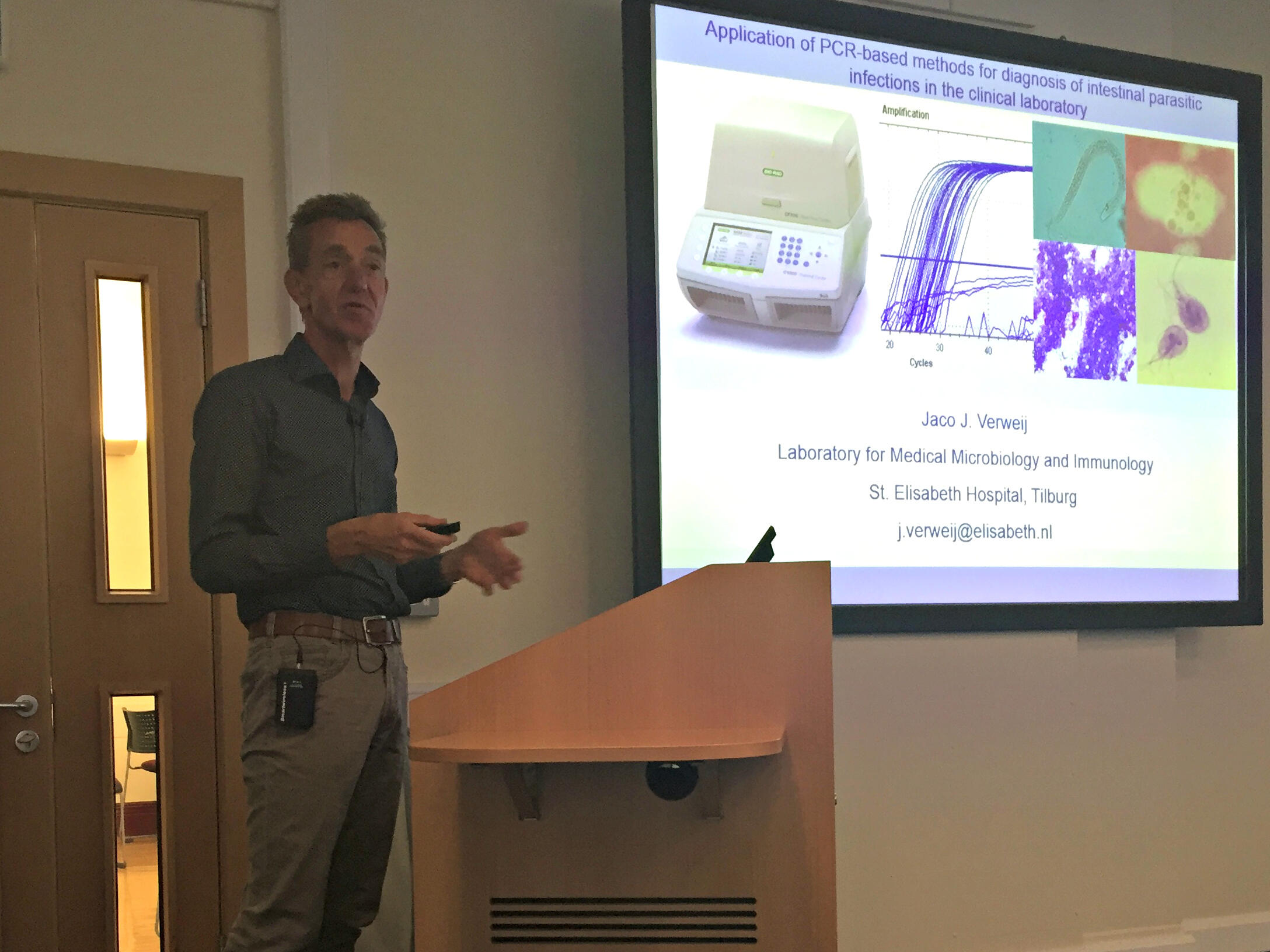
LSTM’s seminar series continued this week with a presentation by Dr Jaco Verweij from the St Elisabeth Hospital in Tilburg, The Netherlands and is part of the COUNTDOWN Consortium. His talk entitled: Molecular diagnostics and associated multiplex PCR platforms for detection of parasitic diseases in Europe and beyond, was introduced by LSTM’s Dr James LaCourse.
Dr Verwij began his talk by looking at the history of diagnostics of parasitic infections, which for many years had been carried out using microscopy, or looking through microscopes, and while the microscopes themselves may have changed over the hundreds of years that they have been used, the methods of diagnosis has remained the same. He then went on to introduce the method of using multiplex real time PCR platforms for molecular diagnostics.
PCR is a technique to amplify target specific parasite DNA sequences that can be detected in human samples, while multiplex PCR will detect more than one target at the same time. The method of amplification allows for a much smaller concentration of parasite to be detectable by this method than by traditional microscopy methods, meaning that the diagnostic test is much more sensitive and can be more accurate. The other advantage of the test is that it can be, in part automated, allowing for multiple samples to be tested simultaneously.
He talked through a number of examples, where samples were subjected to different diagnostic tests which included microscopy, antigen testing and PCR. In the vast majority of cases the PCR found more positive samples than any of the others due to its need for a lower parasitic load within the sample. Dr Verweij then went on to answer some of the questions that he felt had been asked of PCR over the last 20 years, including: does it offer too many false positives? Does it stay positive after successful treatment? What is its value following positive microscopy?
He concluded by looking at what the future of PCR testing might be for diagnostic parasitology. He explained that while PCR might not be suitable for point of care testing in endemic countries, due to its high sensitivity leaving it open to environmental contamination, that it is important to build capacity in those countries, and he hopes that through his involvement with COUNTDOWN, this is something he could address.